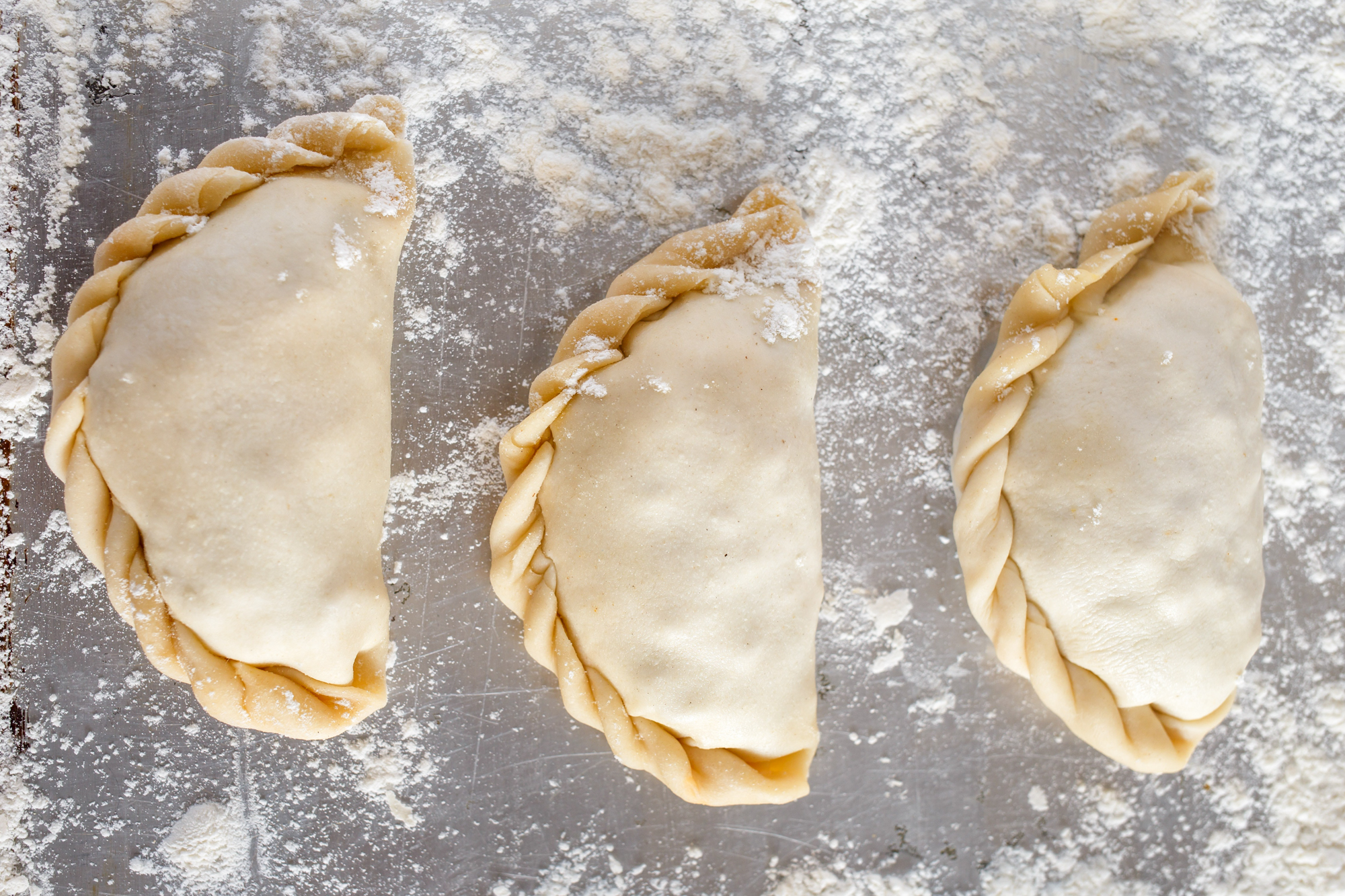The University of Maryland’s La Unidad Latina Fraternity hosted an empanada fundraiser sale in front of the Stamp Student Union Sept. 21 and sold out in less than two hours.
Crowds bustled around the table to buy the homemade empanadas, or pockets of dough stuffed with protein such as meat or cheese, that were cooked by the fraternity members’ mothers. Although they had reserved the table space for four hours, they sold out in an hour and a half.
One of the four main pillars of La Unidad Latina is culture, and food sales, such as that of empanadas or raspados, are one way the fraternity honors that.
“We obviously want to spread our roots, our culture, our Latin American heritage,” chapter President Mauricio Ortiz-Tapia said. “We wanted to do a little fundraiser for the benefits and initiatives and programming of our chapter, as well as give back to the community through some tasty food.”
Ortiz-Tapia said in Latin America, food unites people. The dinner table is where families sit around, talk about their days and bond over food.
“We just want to bring a piece of home back to the students,” Ortiz-Tapia, a junior operations management and business analytics and supply chain management major, said.
Whether he’s eating a simple meal of scrambled eggs with a tortilla and salsa or mole poblano, the traditional dish of Puebla, Mexico, where his parents are from, Ortiz-Tapia finds mealtimes to be sacred and a time to connect with family and friends.
Similarly, Michelle Castro, the Maryland Latin Dance Club’s treasurer, said despite how busy life can get, mealtimes are a consistent way for people to get together and catch up.
[UMD students continue to call for more kosher food options on North Campus]
Castro attended a quinceañera over the weekend, but with the party comes the additional guarantee of a “recalentado,” which is a second event where the hosts bring all of the guests back together to serve the leftover food.
Baleadas and café con pan, or coffee with bread, are two of the most significant meals in Castro’s life.
Castro grew up watching her mother, aunts and sister make Honduran staple baleadas, bean-filled flour tortillas, and understood what it represented to them as immigrants.
“You’re not able to travel, you’re not able to go back and actually be there physically, but you have this physical representation where this is who you really are,” Castro, a junior management major, said. “This is your home country in a plate.”
During the Latinx Heritage Month cookout at this university, Castro brought along some of her American friends and had them taste Latin food, like pupusas and pastelitos.
Because it’s difficult to explain one’s culture and what it means to them, Castro said this was a great moment for her friends to experience it themselves and better understand its significance.
When she was younger and visited Honduras for the first time, Castro’s family was eager for her to try their favorite traditional foods. She said people share their love through food, no matter the cost or effort. Every time she goes back to visit, she’s excited for the food awaiting her because it’s made with love.
[Latinx community celebrates Hispanic Heritage Month with cookout, music on McKeldin Mall]
“It’s about the moment, what surrounds the food,” Castro said.
Not everyone has such sentimentality regarding food, though.
Because of her family’s busy and unaligned schedules, Astrid Mendoza, a sophomore psychology major, didn’t have family mealtimes where everyone got together to eat. Her family viewed food as solely nutrition, so she didn’t develop an emotional connection with food and meals.
She said she retained some trauma from her childhood of being forced to finish her plate. Now, she is conscious in her serving sizes to ensure she doesn’t waste food.
Mendoza’s family is from El Salvador, and some of her favorite dishes are crispy enchiladas and pupusas, which her aunts make especially well.
Although she said there can be a disconnect between different cultures with food because it is just one more thing that highlights your differences, Mendoza believes food can bring people together in appreciating each other’s cultures through their dishes.
“Food sees no boundaries. It can get to at least any place in the world. It’s a great way to connect with people, make new friends, sit down and spend time with one another,” Ortiz-Tapia said.



